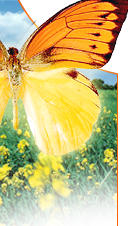 |
 |
EARTH ETHICS 1998 Spring/Summer A
Revitalized Production Ethic for Agriculture, by Paul B. Thompson.
Proclaiming the [agricultural] "production ethic of bygone days" simply broken,
the author finds the basis for identifying the weaknesses of the traditional farming
world view in the world of emerging environmental ethics. He concludes that using
productive efficiency as the sole norm for evaluating a food system is simply
wrong. Thompson goes on to call for "reconstruction of the work ethic" based on
a rethinking of character and integrity in the context of the human need to "make
productive use of our environment" in order to live. Charter for a Shared Farming Ethic. Twenty representatives of agricultural, environmental and animal protection organizations worked for 16 months to produce a draft vision statement for a shared farming ethic. Discussed by participants in the "Soul of Agriculture" conference, it was later revised by Stanley Dundon. This is a short version of a longer statement, which is available from CRLE. A Response to the Vision Statement for a New Farming Ethic, by Leland Glenna. Community Sponsored Agriculture (CSA) is an emerging alternative to existing institutions "that treat human beings and natural resources as commodities." This article briefly highlights CSAs and calls for building concrete institutions on the new values and ethics. Soul of Agriculture Project: Progress and Next Steps, by Roger Blobaum. A report on the "Soul of Agriculture" conference, current follow up activities and plans for the future of the continuing project. This is also an invitation and a road map for those who wish to be involved in this exciting new movement. Agriculture Ethic from the Perspective of the Christian Faith, by Most Rev. Raymond L. Burke. Tracing biblical perspectives and Roman Catholic teaching, this article develops four possible elements for a Christian agricultural ethic: "care of the land, ecological soundness, economic viability, social justice." The author proclaims that Christians must consider the effect of technology use on our "brothers and sisters and on the creation" which they are called to till and to keep. Environmental Perspective, by Derrick Jensen. The author finds the cause for the failure revolutionary movements generally to realize the ideals that energized their movement in the very structure of our society and culture. He then raises a word of caution regarding the emerging agricultural revolution: "the needs mass production--a funneling of resources toward producers--is in opposition to the needs of the community...." Organic Agriculture Endangered, by Frederick Kirschenmann. After a storm of protest, the U. S. Department of Agriculture (USDA) backed off from its proposed rule to implement the organic Food Production Act of 1990. More than 270,000 letters of commentary were received- the vast majority of them highly critical of the proposed rule. This article, reprinted from Rachel's Environment and Health Weekly, describes a critical policy struggle to implement an ecological ethic in agriculture. Quality Agriculture, by Robert F. Welborn. "Quality agriculture" produces food that is healthful, sustains family farming and ranching, supports communities, and "produces food and fiber in a manner that preserves the vitality of the land." Welborn reviews the deeper meanings of agriculture, reviews current attempts to reshape our food systems, and points the reader toward the goal of preserving and enhancing the life and beauty of our planet. Rebuilding Our Food System: The Ethical and Spiritual Challenge, by Peter Mann and Kathy Lawrence. The authors identify an ethical and spiritual crisis at the core of the present and growing crisis in our food systems. Readers are guided through the systems--food, meal, local and global community, seed, soil, and land-- on an exciting and challenging journey to sustainability that may be able to "recover the sacred meaning of seeds, restore biodiversity, and revolutionize the way we think about food." |